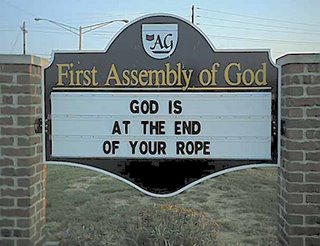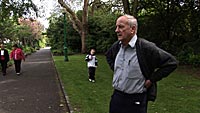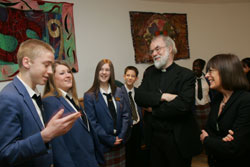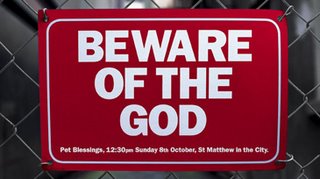 It's not the gentlest piece of writing, but doyen literary and cultural critic Terry Eagleton, a sceptic once associated with the radical Catholic 'Slant' agenda, has written an appropriately devastating review of Richard Dawkins' best-seller, The God Delusion, in the ever-stimulating London Review of Books. No mere 'religious troll' he; I thoroughly recommend Eagleton's Figures of Dissent (Verso, 2003) - which celebrates and excavates the intellectual awkward squad. Everyone from The Frankfurt School to Slavoj Zizek, via Wittgenstein, Northrop Frye, W. B. Yeats, Stanley Fish, Norberto Bobbio and a cast of other unlikely and angular characters.
It's not the gentlest piece of writing, but doyen literary and cultural critic Terry Eagleton, a sceptic once associated with the radical Catholic 'Slant' agenda, has written an appropriately devastating review of Richard Dawkins' best-seller, The God Delusion, in the ever-stimulating London Review of Books. No mere 'religious troll' he; I thoroughly recommend Eagleton's Figures of Dissent (Verso, 2003) - which celebrates and excavates the intellectual awkward squad. Everyone from The Frankfurt School to Slavoj Zizek, via Wittgenstein, Northrop Frye, W. B. Yeats, Stanley Fish, Norberto Bobbio and a cast of other unlikely and angular characters.For his LRB polemic, Eagleton begins: "Imagine someone holding forth on biology whose only knowledge of the subject is the Book of British Birds, and you have a rough idea of what it feels like to read Richard Dawkins on theology. Card-carrying rationalists like Dawkins, who is the nearest thing to a professional atheist we have had since Bertrand Russell, are in one sense the least well-equipped to understand what they castigate, since they don’t believe there is anything there to be understood, or at least anything worth understanding. This is why they invariably come up with vulgar caricatures of religious faith that would make a first-year theology student wince. The more they detest religion, the more ill-informed their criticisms of it tend to be. If they were asked to pass judgment on phenomenology or the geopolitics of South Asia, they would no doubt bone up on the question as assiduously as they could. When it comes to theology, however, any shoddy old travesty will pass muster."
Terry Eagleton is the John Edward Taylor Professor of English Literature at the University of Manchester. His latest book is How to Read a Poem.
[Graphic (c) The Guardian. With grateful acknowledgment]
Comment on this post: FaithInSociety











